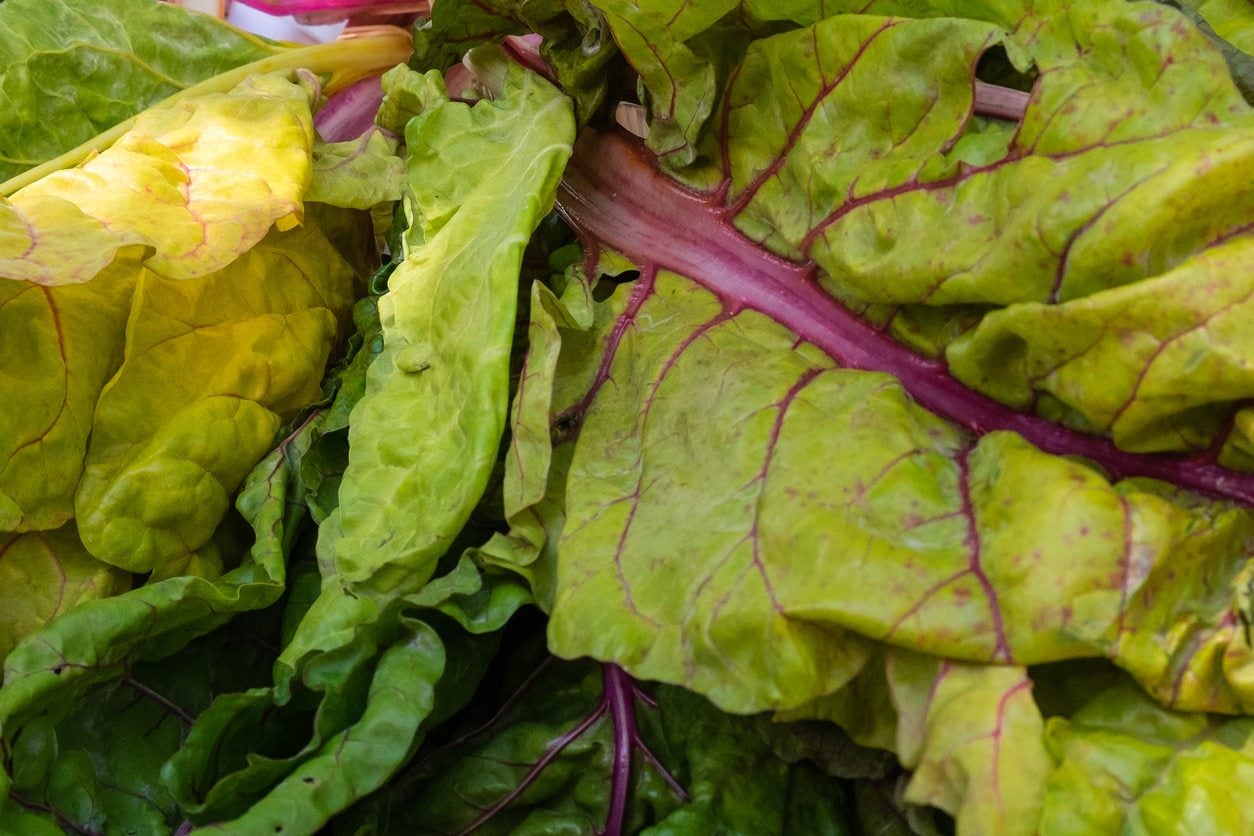Trouble With Swiss Chard: Common Swiss Chard Diseases And Pests


Sign up for the Gardening Know How newsletter today and receive a free copy of our e-book "How to Grow Delicious Tomatoes".
You are now subscribed
Your newsletter sign-up was successful
Swiss chard is generally a trouble-free veggie, but this cousin to the beet plant can sometimes fall prey to certain pests and diseases. Read on to learn about common problems with Swiss chard and explore possible solutions that may save the huge, nutritious, flavor-rich leaves.
Fungal Trouble with Swiss Chard
Fungal Swiss chard diseases are the most common culprits responsible when your plants fall ill in the garden. Cercospora Leaf Spot – This fungal disease tends to affect lower leaves first. Cercospora leaf spot is recognized by brownish gray or black spots with reddish purple halos. In humid weather, the leaves may take on a fuzzy appearance due to the silvery gray spores. Downy mildew – Humid conditions or excess moisture may result in downy mildew, a fungal disease that is unsightly but usually not deadly. Downy mildew is recognized by a whitish gray, powdery substance on the leaves. To prevent and treat fungal Swiss chard diseases, leave plenty of space between plants to provide adequate air circulation. You may also need to thin out the Swiss chard leaves. Water at the base of the plant and avoid wetting the leaves. Avoid excess moisture and water only when needed, since Swiss chard generally only requires irrigation during hot, dry weather. If more aggressive treatment is required, use a fungicide containing copper.
Swiss Chard Pests
Occasionally insect pests are to blame when you have Swiss chard problems in the garden. The most common include: Flea beetles – Leaves with a wilted or “shot hole” appearance may be a sign of flea beetles – small, black, bluish, bronze, gray, or sometimes striped pests. Sticky tape is an effective control, or you can apply a commercial spray containing pyrethrins or a homemade spray consisting of 5 parts water, 2 parts rubbing alcohol, and 1 tablespoon (15 ml.) of liquid dish soap. Spinach leafminer – Long, narrow tunnels are usually the work of leafminer larvae – pale white, carrot-shaped maggots. Cover the rows with cheesecloth or fine-mesh netting or apply an insecticidal soap spray or pyrethrin-based spray. Aphids – Aphids, a common garden pest, are easy to treat with insecticidal soap spray, although several applications may be needed. Avoid pesticides, which kill beneficial, aphid-eating insects such as lady beetles, syrphid flies, or green lacewings.
Sign up for the Gardening Know How newsletter today and receive a free copy of our e-book "How to Grow Delicious Tomatoes".

A Credentialed Garden Writer, Mary H. Dyer was with Gardening Know How in the very beginning, publishing articles as early as 2007.